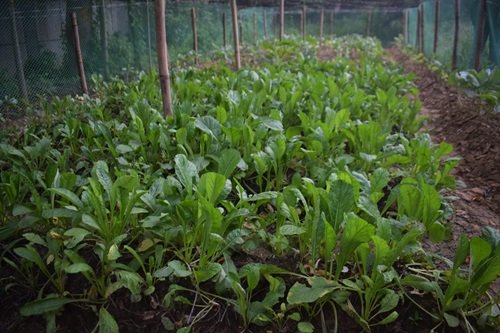Amazon and ICLEI South Asia launch urban food gardens to create biodiversity havens in megacities
Supported through Amazon’s Right Now Climate Fund (RNCF), the initiative will establish 75 urban food gardens across Bengaluru, Delhi, Hyderabad, and Kolkata municipal schools.
Amazon and ICLEI-Local Governments for Sustainability, South Asia, today announced the launch of an extensive urban food garden initiative to improve nutrition for children in municipal schools in India. The initiative aims to set up a network of 75 urban food gardens in municipal schools across Bengaluru, Delhi, Hyderabad and Kolkata. This US$1 million initiative is built on India’s School Nutrition Garden Scheme and is expected to provide 15 million school meals over three years for children in need.
The gardens in these urban biodiversity havens are meticulously designed small cultivation spaces promoting local food production and community engagement. In addition to encouraging state schools to grow food and supplying a greater variety of fresh produce in students’ midday meals, the initiative also supports educational experiences in composting and rainwater recycling.
The urban food garden initiative is supported through Amazon’s Right Now Climate Fund, a $100 million initiative supporting climate resilience and nature conservation in communities where it operates. This fund finances nature-based solutions that complement Amazon’s broader operational decarbonisation and sustainability efforts. Urban gardens created through this initiative are designed to be biodiverse, productive, and resilient to the adverse impacts of climate change, contributing to the overall wellbeing of the environment and communities involved.
“The urban garden initiative with ICLEI South Asia is not just about growing food, it’s about nourishing futures. This aligns deeply with Amazon’s commitment to conserving, restoring, and supporting nature and our communities,” said Abhinav Singh, Vice President Operations, Amazon India. “By supporting this transformative initiative, we’re investing in the wellbeing of India’s youth and communities, environment, and sustainable development goals.”
In areas where space is limited, machaan (trellis) farming, or multilayer farming, will be employed to support year-round cultivation. This system helps to effectively utilize space, with vegetable plants such as ginger cultivated on the ground, and creepers like gourds covering the top of the trellis. Where there is space in the middle, tomatoes and brinjals can be grown. This practice of creating micro-habitats not only increases crop diversity, but also addresses the challenges of water logging and enhances overall produce availability. The urban gardens will enhance the air-quality while supporting food base for pollinator species such as bees. Improving pollinator diversity and supporting an improved habitat for them will contribute to addressing the global crisis of pollinator decline. Additionally, these urban biodiversity havens will serve as a valuable educational tool, giving students firsthand experience with natural processes such as pollination and plant growth cycles.
Supported through Amazon’s Right Now Climate Fund

